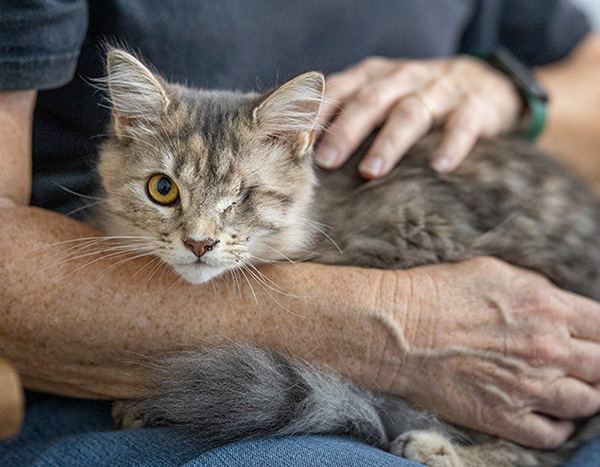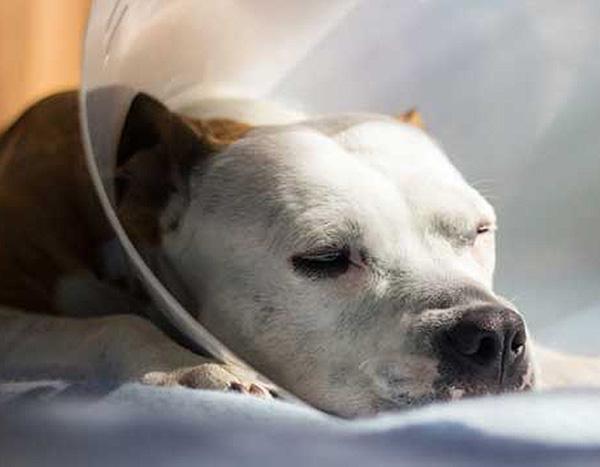POST-OPERATIVEINSTRUCTIONS
Post-Operative Instructions and Care
FOR THE SAFETY AND WELL-BEING OF YOUR PET, WE RECOMMEND YOU FOLLOW THESE POST-OPERATIVE INSTRUCTIONS:
1. Your pet received pain medication during surgery and should not require any additional medication. However, if they seem painful or uncomfortable let us know.
2. Your pet just had major surgery so please limit their activity. We recommend you keep them in a confined space (a bedroom or bathroom) for a day post-surgery. No running, jumping or rough playing for 2 weeks.

4. Your pet's incision was closed with dissolvable sutures and surgical glue. You DO NOT need to bring them back for suture removal (unless specifically stated). They will dissolve on their own. Male cats do not require sutures and the incision is left open. It is extremely important they do NOT get the surgical area wet. Getting the area wet can cause the sutures/glue to dissolve too soon. No baths for 2 weeks post-surgery.
5. Do NOT allow your pet to lick at the incision. If they lick or are left unsupervised, we recommend you purchase an e-collar.

6. Monitor your pet’s incision daily until it has healed.
-
- A small amount of blood seepage is normal immediately after surgery.
- Some redness and swelling of the incision is expected and normal.
- If you notice abnormal or excessive redness, swelling or discharge please contact us at clinic@vocalforpets.org or 352-640-7387 (PETS)
7. If you feel you need EMERGENCY help, please go to the nearest animal emergency center.
- IF YOU SEEK MEDICAL CARE, PLEASE NOTE THAT VOCAL IS NOT FINANCIALLY RESPONSIBLE FOR YOUR BILLS.
- ALL EFFORTS SHOULD BE TAKEN TO PREVENT POST-OPERATIVE ISSUES.
8. Your pet may still be under the effects of anesthesia and/or pain management medication.
- You may see dilated pupils, unsteadiness or lethargy, lack of appetite, moodiness, or appearance of drunkenness. These are usual reactions when the pet is coming out of anesthesia.
- It is best to allow your pet to recover in a quiet, safe place in your home.
- It is also advised that the pet not be over-handled.
- If your pet is a cat, let the cat come out of the carrier on her own.
9. Your pet may have had a protective eye ointment placed in the eyes during surgery.
- This may make your pet’s eyes look glazed for a short period of time.
10. Males remain fertile for 3 to 4 weeks after surgery.
11. Females that were in heat when spayed may try to breed for up to 10 days after surgery. Females should be kept from males.
- Do not allow a female to mate after surgery; it can be life threatening to the pet
- Females that were in heat may have some bloody vaginal discharge for a few days; this is caused by their hormone levels and is normal.
12. Please take measures to re-hydrate your pet when you get them back home.
- Your pet has been anesthetized for a good part of the day and will need water.
- It is recommended that you offer them plenty of water and a small amount of food when they get home.
If you have any questions or concerns post-surgery, please contact us during normal business hours at 352-640-7387 (PETS). For a quicker response, please email us at clinic@vocalforpets.org